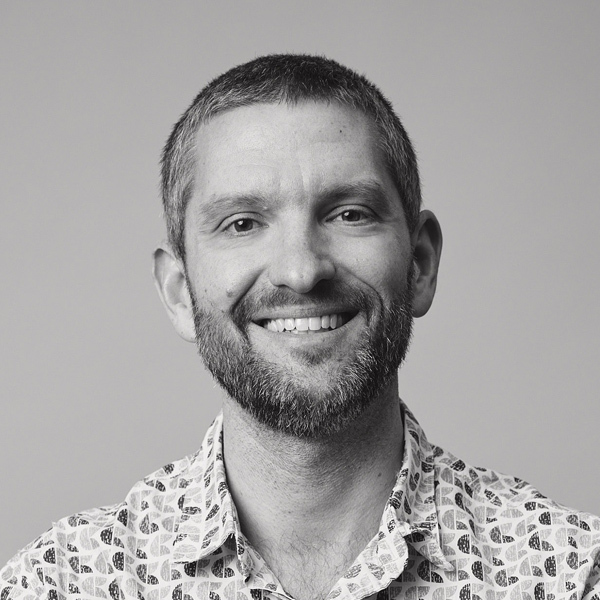The freelancer’s mental load
When you run your own business, can you afford to have an off switch?

Do you ever feel jealous of friends who work a 9–5 and can simply leave work at the office and “switch off” when the clock strikes five?
When was the last time you took a proper holiday, with no work, no notifications, and no constant email-checking?
If you run your own freelance business, you probably feel like you never have any true downtime. Not even on the weekend. You can never fully relax. You can never get completely away from work, because work is too intimately intertwined with your existence.
You lay in bed at night, but instead of falling asleep, you’re thinking about your next project scheduling challenge and how you can improve your client acquisition. You don’t sing in the shower, because you’re busy rehearsing your next important client email over and over through your head instead.
I’m lucky enough to run along my local beach every morning. But rather than enjoying that blue horizon, I’m having thoughts about a current UX prototype, or a new branding idea that might fit an upcoming project.
Never fully working, nor fully resting.
Being a freelancer is more than a full time job. It’s all the creative work of a employee, plus the equally important parts of running a business. It’s managing projects, time, and deadlines; client communication and setting expectations; billing, accounting, and taxes; sales, marketing, meet & greets, estimates, and proposals; strategy, and business development.
If you’re like me — and you want to maximise your creative, billable working hours during the day — all the rest has to squeeze in the cracks somehow. It seeps into evening and overflows into weekends.
It’s exhausting isn’t it?
Is there any way to turn it off? Can you be a successful freelance creative without the constant mental load of these concerns running through your head 24/7?
And worse, even when you’re being incredibly productive, you feel like you haven’t done enough. Like there’s something more you should have been doing. Because every hour you work, you’re earning. When you’re not working, there’s no automatic paycheck arriving in your bank account. You have to earn it by being focused and productive. Every. Single. Day.
As Adeline Algieri says in The Constant Unrest of the Freelancer:
You never really cut off from work — so you are never 0% engaged. And because you are freelancing, you also hardly ever feel like you are 100% engaged. Constantly questioning the quality of your work. Always on the lookout for new clients and contracts. Setting your own rules, without anyone to validate them.
Even when you are working 12 hours a day, you are still not sure that you are being productive enough. You always have this itchy feeling that you could — that you should — have done something more today.
Never fully working, nor fully resting.
Freelancing and entrepreneurship aren’t for everyone, and this is exactly why. Running your own indie business requires the ability to juggle all the balls at once, not just practicing your craft. It takes a toll. It’s not surprising that there’s an epidemic of poor mental health in the tech industry, which will only be getting worse as the gig-economy continues to cannibalise traditional employment.
So if you’re unsettled by the constant unrest of freelancing, what can you do?
Here are some ideas.
Feel good about what you achieve by planning steps towards your long-term goals
Adeline suggests the first step is feeling good about what you do and don’t do. Find satisfaction in what you achieve every day, week, and month. Set realistic goals, and enjoy ticking the boxes when they’re complete. That’s a job well done. Don’t think you have to do more.
It also means extending your vision of the future to eliminate uncertainty. This will allow you to fully disengage from your freelance anxieties. Plan for long-term financial security, ongoing skill growth, and independent business development. It’s easier to feel satisfaction in what you achieve each day if you know those tasks are getting you one step closer to your long-term goals.
If you know where you are going, why you are doing what you do today, then you will feel better about every step you take. Including doing nothing.
Create clear work/life boundaries
Agree with your clients, friends, and family about when work is off limits. Do you want to work evenings? Weekends? I don’t, unless by my choice. I choose to use some evenings for writing pieces like this one, but I don’t allow my clients work to barge into evening downtime.
You also need to set expectation for when you want to be focused on work and not distracted. A supportive home or office environment is a must. (More challenging if you have kids!)
When you set those boundaries — and have support from your family to uphold them — you’re giving your brain permission to fully focus on work when it should be, and to detach from work during down time.
If you don’t set clear boundaries, or you make exceptions and break your rules too often, your mind falls back to uncertainty and entropy.
Outsource your weaknesses
Are there some parts of running a business that overwhelm you? Maybe you’re too introverted to enjoy sales, or too humble to market your achievements? Too busy with creative work to bother with accounting?
You can’t skip those things — they’re all very necessary for a successful freelance business. But that doesn’t mean you have to tackle them alone.
Enlist your partner to support you in these peripheral activities (they may even thank you for allowing them to be more involved with your business). Hire an accountant (or at least automate some things with an online service like Xero). Consider a virtual assistant. The cost of these things is minimal compared to the value of your own time and attention.
Even if outsourcing tasks saves you only a few minutes a day, or a few hours per month, the relief to you mental load is enormous. Knowing that they’ll be taken care of without much of your precious attention removes more uncertainty from your never-ending to-do list.
Use scheduling to improve business focus and efficiency
Even if have to do it all alone, that doesn’t mean you’re out of options. There’s always room for improvement in your business processes to promote efficiency.
It may help to create a schedule for when you do certain business tasks. For example, block off one hour at the end of each month for invoicing and accounting. Save each Friday afternoon for marketing and business development.
Use 15 minutes each evening to review the day’s emails and feedback, so you’re ready to charge forward confidently with work the next morning, without questions hanging over your head (this one’s good for that over-active mind that can’t sleep).
Set one day per week (or every few weeks) when you’re most open to networking and meeting new clients, and then schedule as many meetings as you can on that day to make it as productive as possible. The longer your commute to those meetings, the more important this becomes.
Finding the off switch
By using these tips, I’ve refined my business processed to the point that all the extra tasks outside of my creative work are so minimal that I can focus nearly all my time on my craft. Very little feels “wasted” on non-billable business development chores. Which means, despite not working more than I did before, I feel that my days are more productive than they used to be. The guilt of never doing enough melts away. And sometimes, if I’m lucky, I can turn my business mind off completely.
* Update *
I just came across a brilliant article which shares more insight into one piece of this puzzle — the anxiety caused by trading time for money. Please read The Psychological Trap of Freelancing for more on this topic.
People who attach dollar signs to their time — or “value time like money” — tend to be overwhelmingly less happy than those who don’t, because their nonworking hours suddenly seem less important. “Free” time gets tainted with guilt because there’s a cost associated with it.
Want to comment?
See this story on Medium
Hi, I'm Benek Lisefski. Since 2001 I've run my own independent design business. Join me as I unfold 20 years of freelance business knowledge: honest advice and practical tips to help you take your indie career from good to great.
MediumTop writer in Design, Business, Creativity, and Entrepreneurship.
 Menu
About
Menu
About


